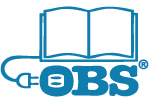With almost every innovation in the publishing industry comes a cry to save the independent book store from impending doom. In the 1930s, the big threat was the paperback. In the 1970s, it was mall chains like Waldenbooks and B. Dalton. Then it was Amazon. And now it’s the ebook.
But just as the paperback didn’t deal the independent bookstore its fatal blow, neither will the ebook. Despite impressions to the contrary, it appears that while major brick and mortar stores like Borders are folding under digital pressure, the independents are on the rise: in 2012, independent sales rose about 8% over the 2011 figures, according to the American Booksellers Association (ABA).
“I think the worst days of the independents are behind them,” says Jim Milliot, coeditorial director for Publishers Weekly magazine. “The demise of traditional print books has been a bit overblown. Everybody is a little anxious, but they are starting to think they’ve figured it out for the time being.”
There are three main factors in the rise of the indie bookstore:
- First, the indies have taken a page from the big box stores’ book by diversifying their income streams: instead of selling just books, bookstores are now cafes, playgrounds, or computer labs. Some bookstores even become publishers in their own right, purchasing rights and digitally republishing previously out-of-print titles.
- The second factor contributing to the indie bookstore revival is the rising popularity of the Buy Local movement in the United States. A rather delayed reaction to the proliferation of WalMart, the Buy Local movement focuses on supporting local businesses in favor of the national (and international) chains that are taking over.
- And last but certainly not least, the ubiquity of the internet and social media has given independent bookstores a forum for marketing and advertising that costs practically nothing. Through social media networks, bookstores can reach thousands of readers in a single click. This is worlds away from purchasing print ads in Publisher’s Weekly!
There is no question that the ebook has been a game-changer for the publishing industry. And now, it appears that the independent bookstores have the agility necessary to adapt and survive. Michael Tamblyn, chief content officer at ebook/ereader company Kobo, says that “indies are the small, fast-moving mammals in this dynamic.”
